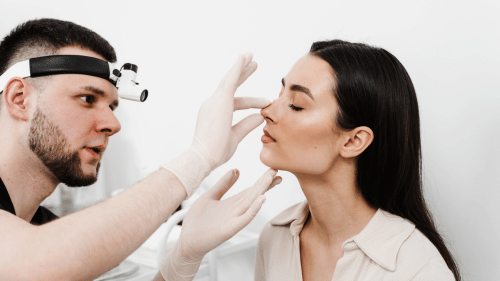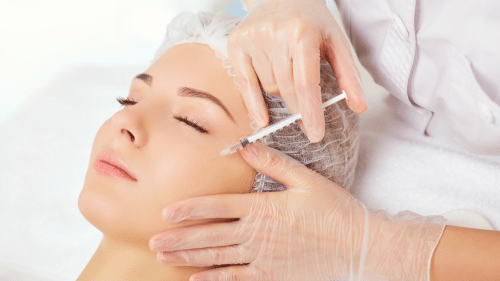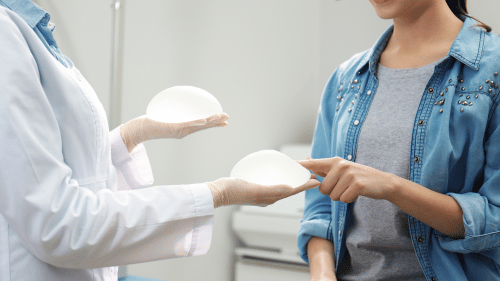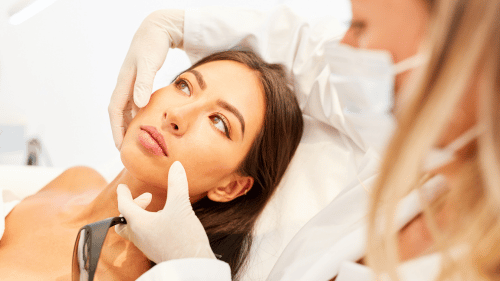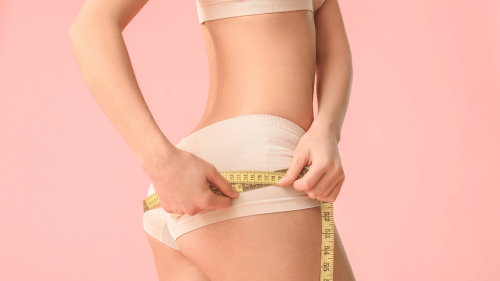Buccal Fat Removal
Buccal Fat Removal is a cosmetic procedure that removes excess fat from the cheeks to create a more sculpted, contoured facial appearance and highlight the cheekbones.
- The Only Guide You’ll Ever Need
Buccal Fat Removal
Buccal Fat Removal is a minimally invasive surgical procedure that reduces the fullness of the lower cheeks by removing the buccal fat pads. Some individuals naturally have rounder or fuller faces due to genetics or aging, which can obscure natural bone structure and make the face appear heavier. By carefully removing these fat pads, the procedure enhances cheekbone definition and creates a slimmer, more contoured facial silhouette. At our clinic, our skilled surgeons use precise techniques to ensure balanced and natural-looking results that harmonize with your overall facial anatomy.
The procedure is typically performed under local anesthesia and takes about 30 to 60 minutes. The incisions are made inside the mouth, so there are no visible scars. Recovery is generally smooth, with most patients resuming normal activities within a few days. Swelling is expected in the initial healing period, but the final sculpted results begin to emerge within a few weeks and continue to refine over time. Buccal fat removal is ideal for individuals seeking permanent facial contouring without implants or injectable fillers.
Purpose
Slims cheeks for a contoured facial shape.
Procedure
Removes fat pads inside cheeks.
Areas Treated
Lower cheeks.
Anesthesia
Done under local or general anesthesia.
Recovery
Minimal downtime, some swelling.
Results
Sculpted, V-shaped cheek appearance.
What is Rhinoplasty ?
Rhinoplasty, commonly known as a “nose job,” is a surgical procedure designed to reshape the nose for aesthetic enhancement or functional improvement. It can address concerns like:
A dorsal hump
Drooping or bulbous nasal tip
Crooked bridge
Overall facial imbalance
In many cases, rhinoplasty is also performed to improve nasal breathing, particularly when combined with correction of a deviated septum.
At our clinic, board-certified surgeons take a personalized, detail-oriented approach, analyzing each patient’s facial structure to deliver natural-looking and harmonious results.
Rhinoplasty Process
1. Consultation
Detailed facial and nasal analysis
Discussion of aesthetic goals and functional concerns
Customized surgical plan tailored to your features
2. Surgical Procedure
General anesthesia is typically used
Hidden incisions (inside the nostrils) minimize visible scarring
The nose is reshaped (tip refined, hump reduced, bridge straightened, etc.)
If needed, internal corrections like a septoplasty are performed to enhance breathing
3. Recovery
Surgery duration: 2–3 hours
Outpatient procedure: most patients go home the same day
Swelling and bruising peak in the first week and subside within 1–2 weeks
External splint worn for about a week
Return to light activities and office work: typically within 7–10 days
Final results: refined nasal shape settles within 12 months
Rhinoplasty Cost in 2025 (Turkey)
The experience of the surgeon
The techniques used
Whether functional work (e.g., septoplasty) is also included
Average Cost in Turkey:
Why Turkey?
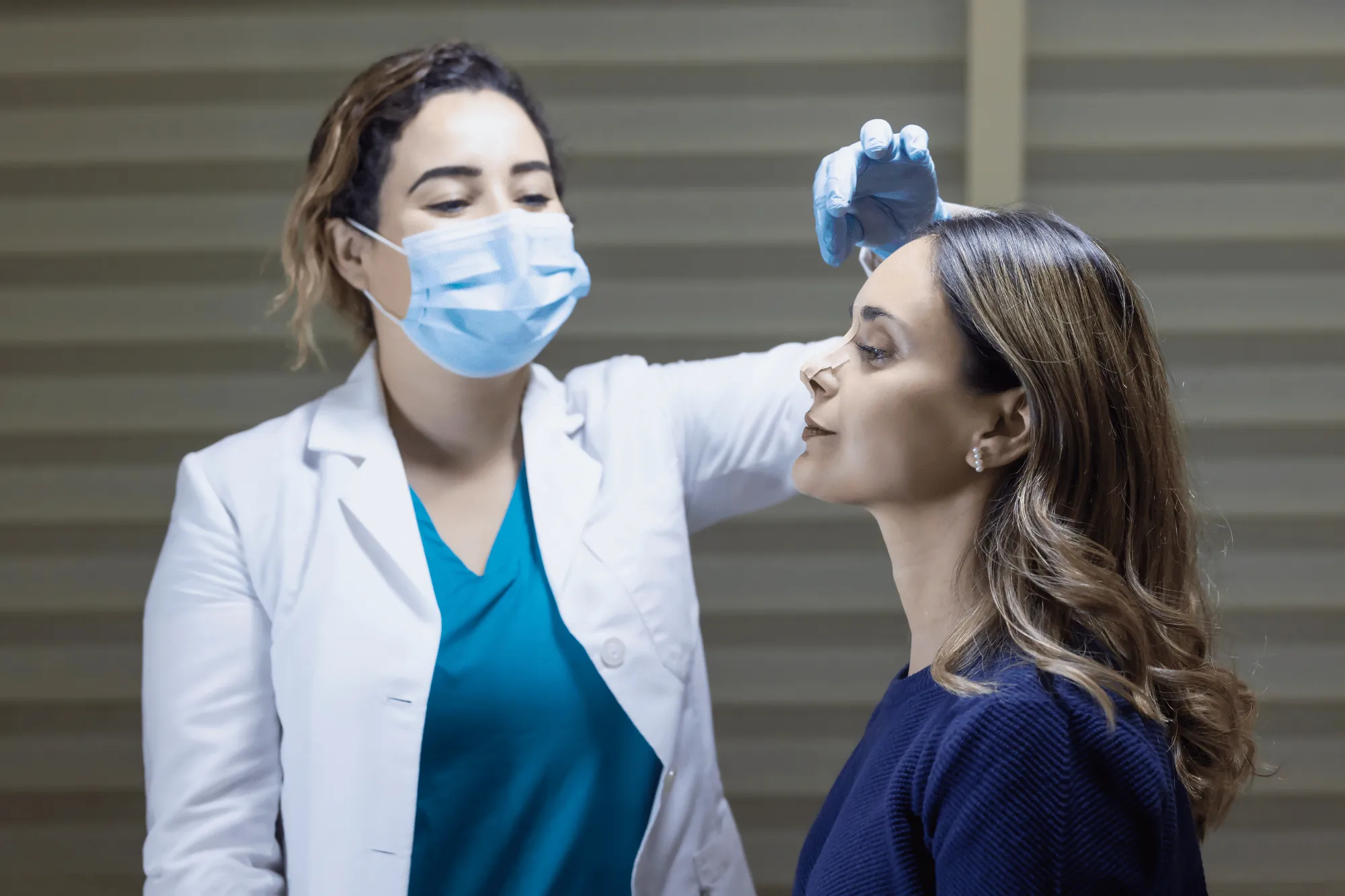

Overview
What is Buccal Fat Removal?
Buccal Fat Removal is a cosmetic surgery that targets the buccal fat pads located deep in the lower cheeks. Removing these pads helps define the facial structure by reducing roundness and creating a more sculpted, V-shaped contour—especially popular among individuals looking to enhance their cheekbone and jawline definition.
Buccal Fat Removal Involves:
Incision: Made inside the mouth near the molars—no external scars
Fat Removal: Targeted removal of the buccal fat pads to reduce lower cheek fullness
Sculpting: Achieves a slimmer, more defined facial contour
Closure: Internal dissolvable sutures to promote quick healing
Process
Buccal Fat Removal Process
1. Consultation
Evaluation of facial shape, symmetry, and fullness
Discussion of patient goals and aesthetic preferences
Medical history review to determine suitability
Customized surgical plan to achieve natural, balanced results
2. Surgical Procedure
Typically performed under local anesthesia
Small intraoral incisions made inside the cheeks
Buccal fat pads gently removed through careful dissection
Procedure duration: approximately 30–60 minutes
3. Recovery
Minimal downtime—most return to normal activities within 2–3 days
Swelling is common and may last 1–3 weeks
Soft diet recommended during initial healing
Final contouring results become more noticeable within 1–2 months
Costs
Facelift (Rhytidectomy)
The cost of a facelift can vary depending on several factors, including the complexity of the procedure, the surgeon’s experience, and whether additional treatments (such as a neck lift or eyelid surgery) are performed at the same time.
Typical cost range: $7,000 – $15,000
The experience of the surgeon
The techniques used
Whether functional work (e.g., septoplasty) is also included
Average Cost :
Cost Range : $7,000 – $15,000
What’s included:
- Surgeon’s fee
Anesthesia fees
Operating room and facility costs
Pre-operative consultations and post-operative care
Compression garments or necessary supplies
Before & After
Authentic Patients & Genuine Results
Hear It Straight from
Our Patients Real Stories, Real Impact.
Discover what our patients have to say about their transformation journey with us.
Services
Faq's
Frequently Asked Questions
Have questions about buccal fat removal? We’ve answered the most common concerns to help you feel confident and informed before your procedure.
What age is best for buccal fat removal?
Most patients are between 20 and 40 years old. The best time depends on facial structure, fat distribution, and skin elasticity. It’s important to avoid this procedure if your face is likely to thin significantly with age.
Will buccal fat removal change my appearance dramatically?
The change is noticeable but subtle. It enhances facial definition without drastically altering your appearance. You’ll look more sculpted, not different.
How long will the results of buccal fat removal last?
The results are permanent, as the buccal fat pads do not regenerate. However, natural aging and weight fluctuations may affect overall facial volume over time.
Is buccal fat removal painful?
Most patients report mild discomfort, similar to a dental procedure. Swelling and tenderness inside the cheeks are common but short-lived.
How long does recovery take?
Initial recovery is typically 2–3 days. Most swelling resolves within 1–2 weeks, and final results appear gradually over a couple of months.
Will I have visible scars after buccal fat removal?
No. All incisions are made inside the mouth, so there are no visible external scars.
Can buccal fat removal be combined with other procedures?
Yes. It’s often combined with chin liposuction, facelift, or jawline contouring for more comprehensive facial sculpting.
Am I a good candidate for buccal fat removal?
Ideal candidates are non-smokers with fuller cheeks and good skin elasticity who seek a slimmer, more contoured face. A consultation can confirm if the procedure is right for you.
How do I prepare for my buccal fat removal surgery?
Avoid alcohol, smoking, and blood-thinning medications. Follow pre-op instructions including oral hygiene guidelines to prevent infection.
Will my cheeks look hollow when I age?
If performed conservatively, no. Removing too much fat can lead to hollowness later in life, which is why surgeon expertise and patient selection are key to natural, long-term results.
Claim Your Free Consultation Now!
If you have questions, need support, or are looking for medical guidance, our expert team is ready to assist you.
- Customized Treatment Plan in Minutes!
- Complimentary Consultation and Evaluation
- Round-the-Clock Booking Available
- Everything Included in One Package
- Over 2,800 Clients and Growing in 32+ Countries







